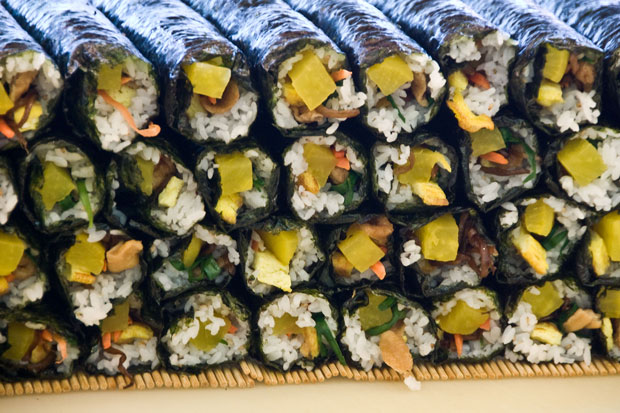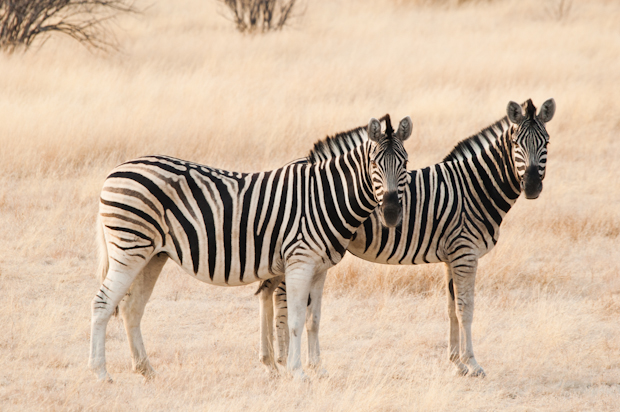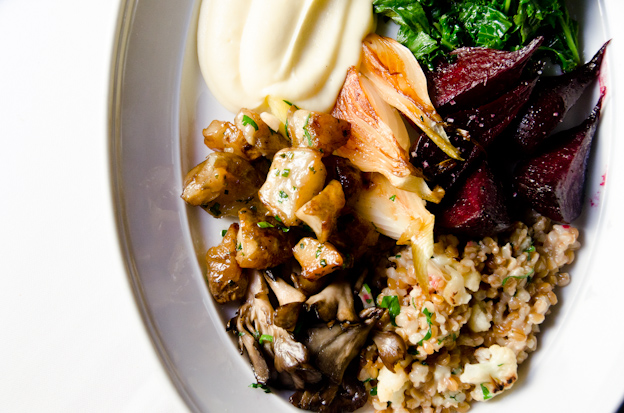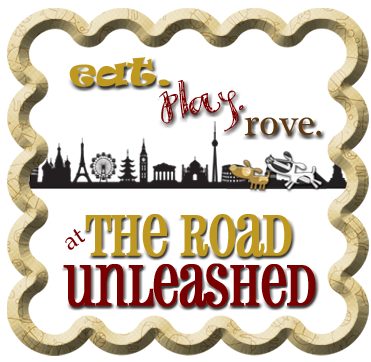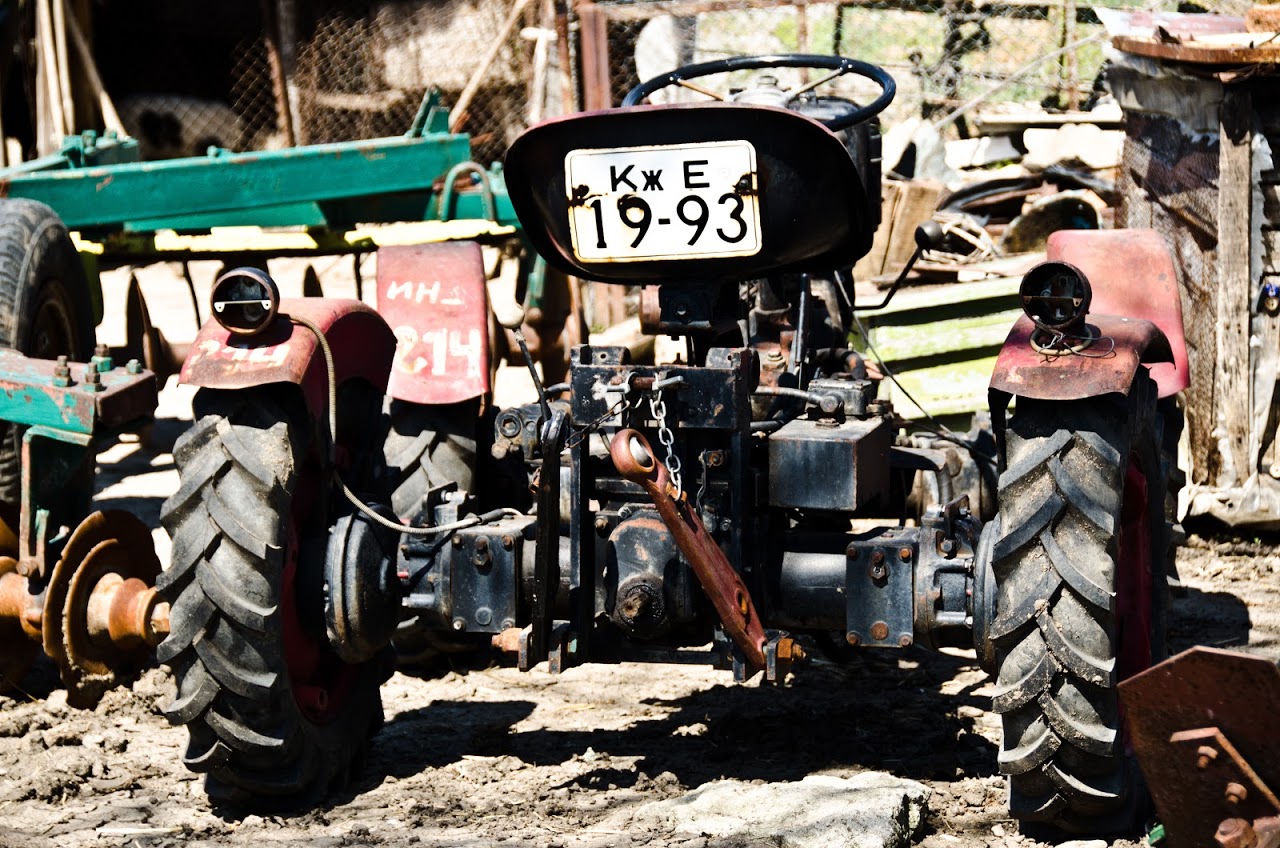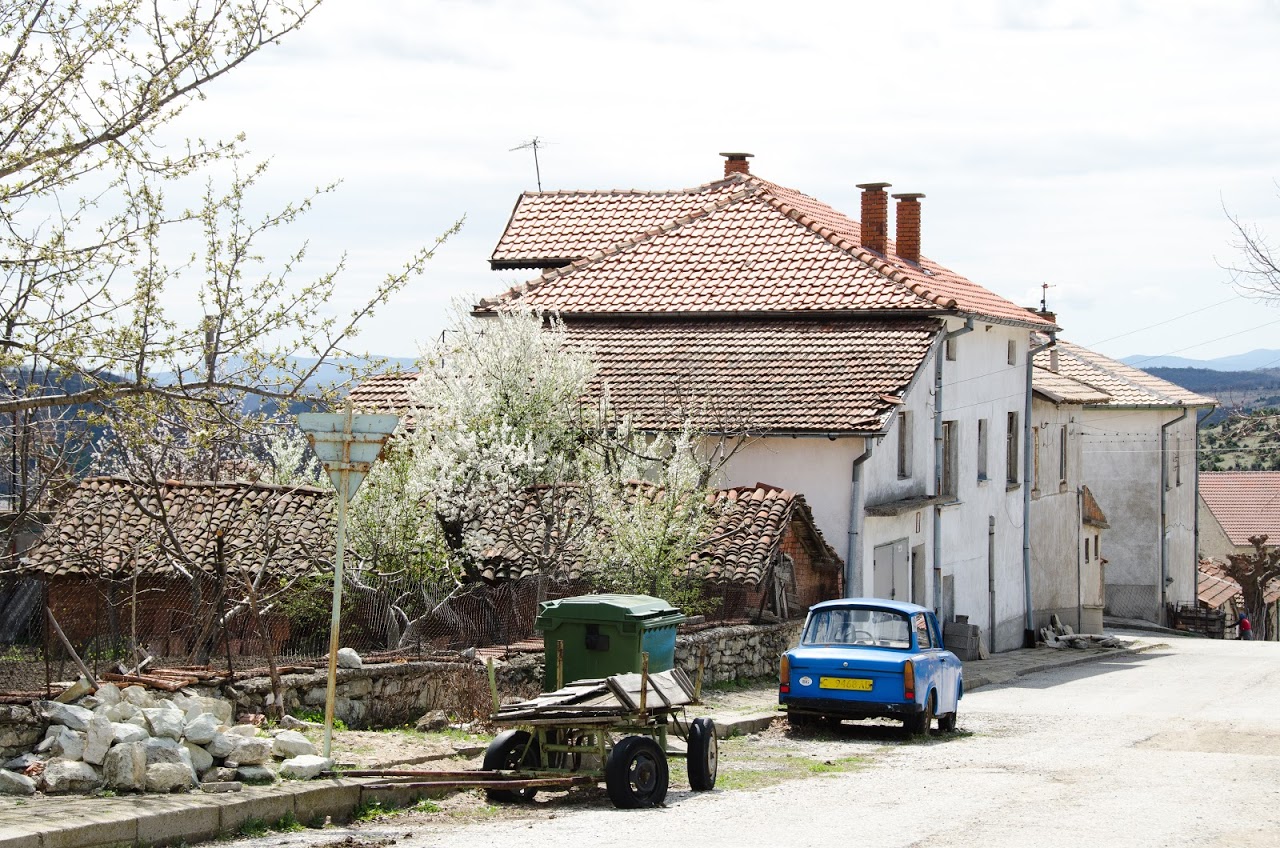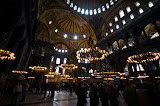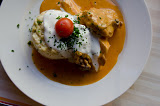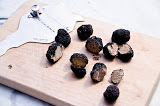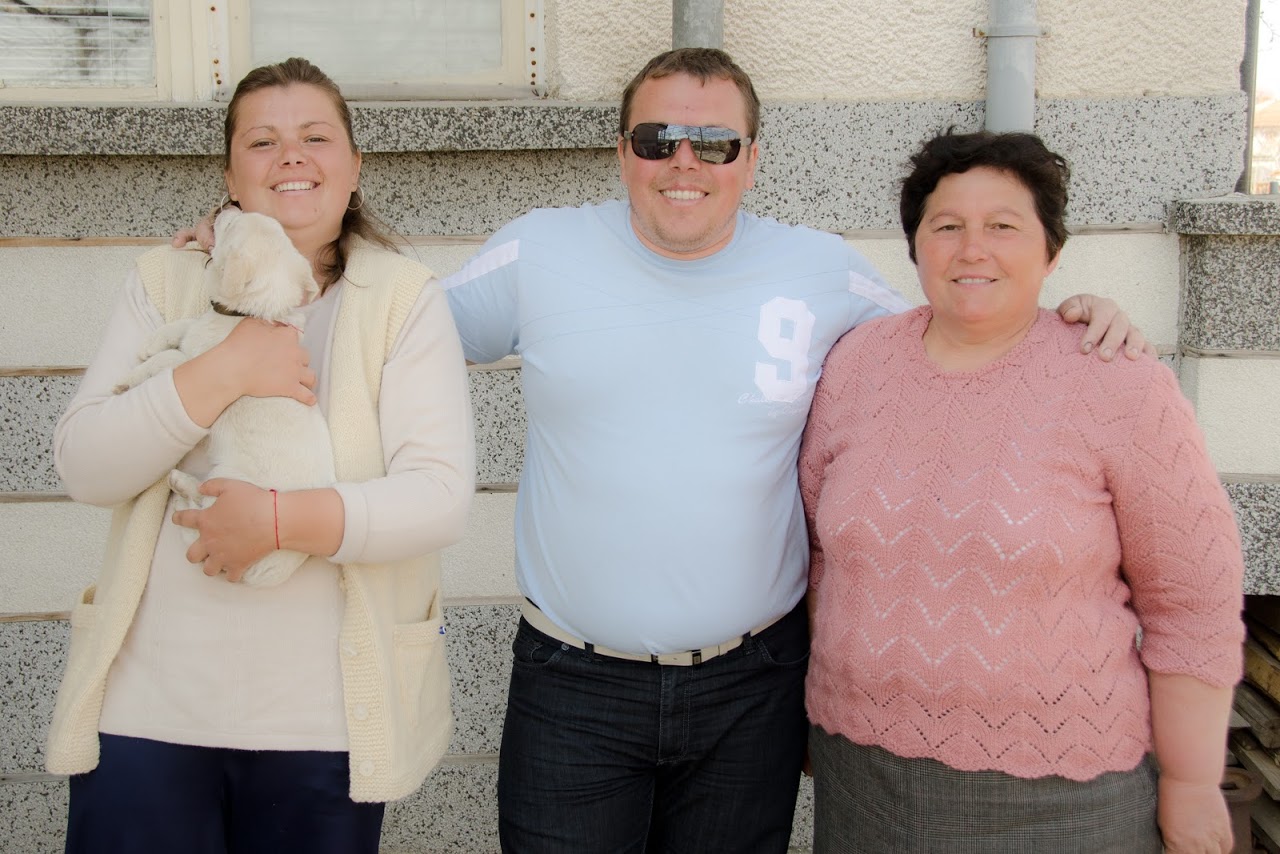
|
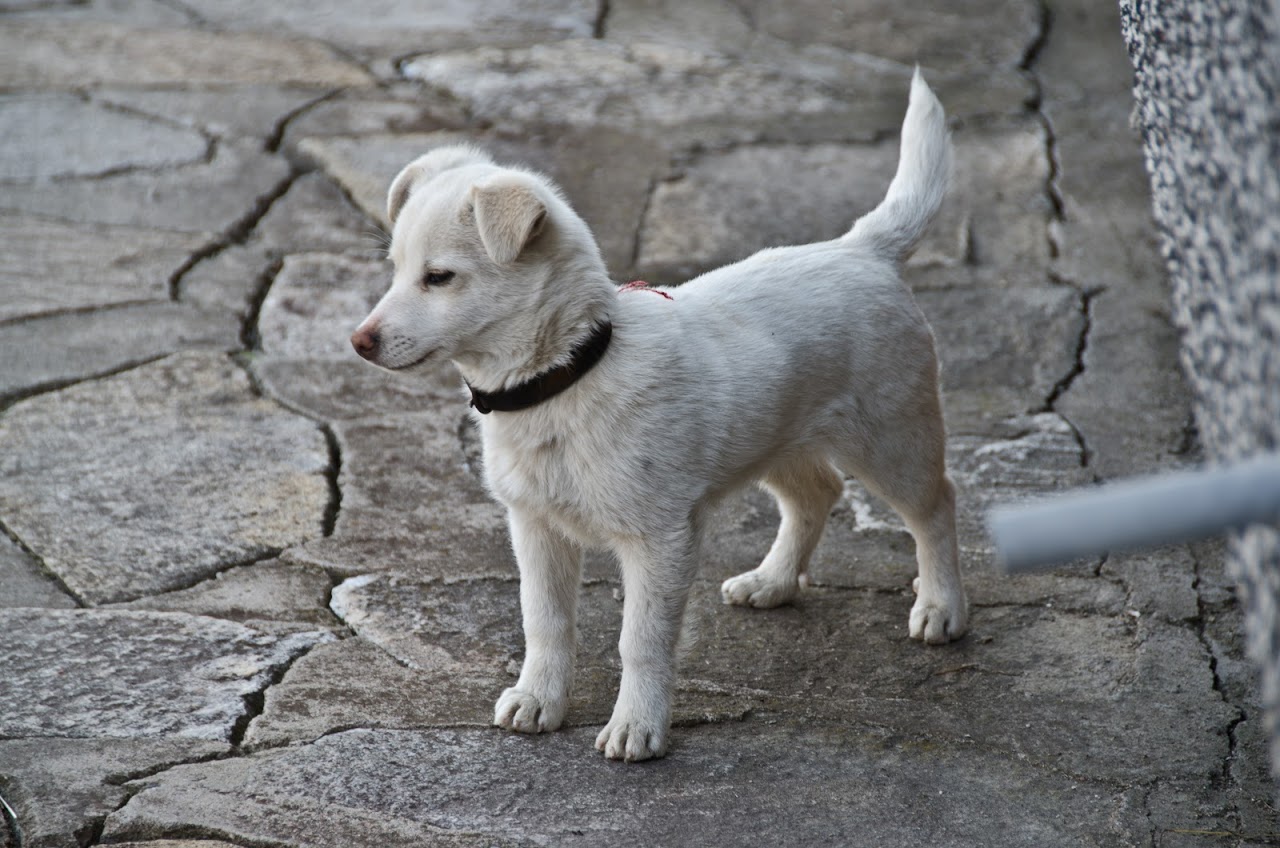
|
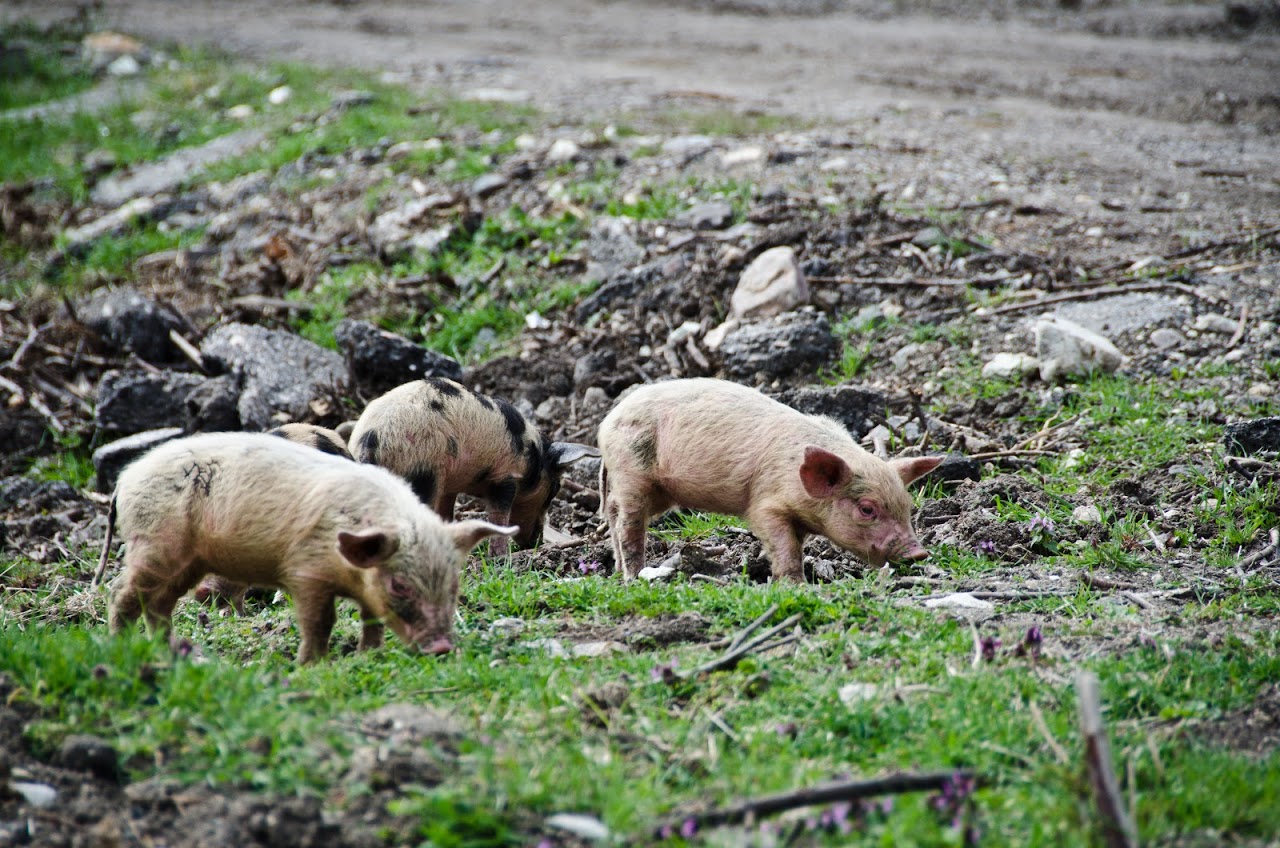
|
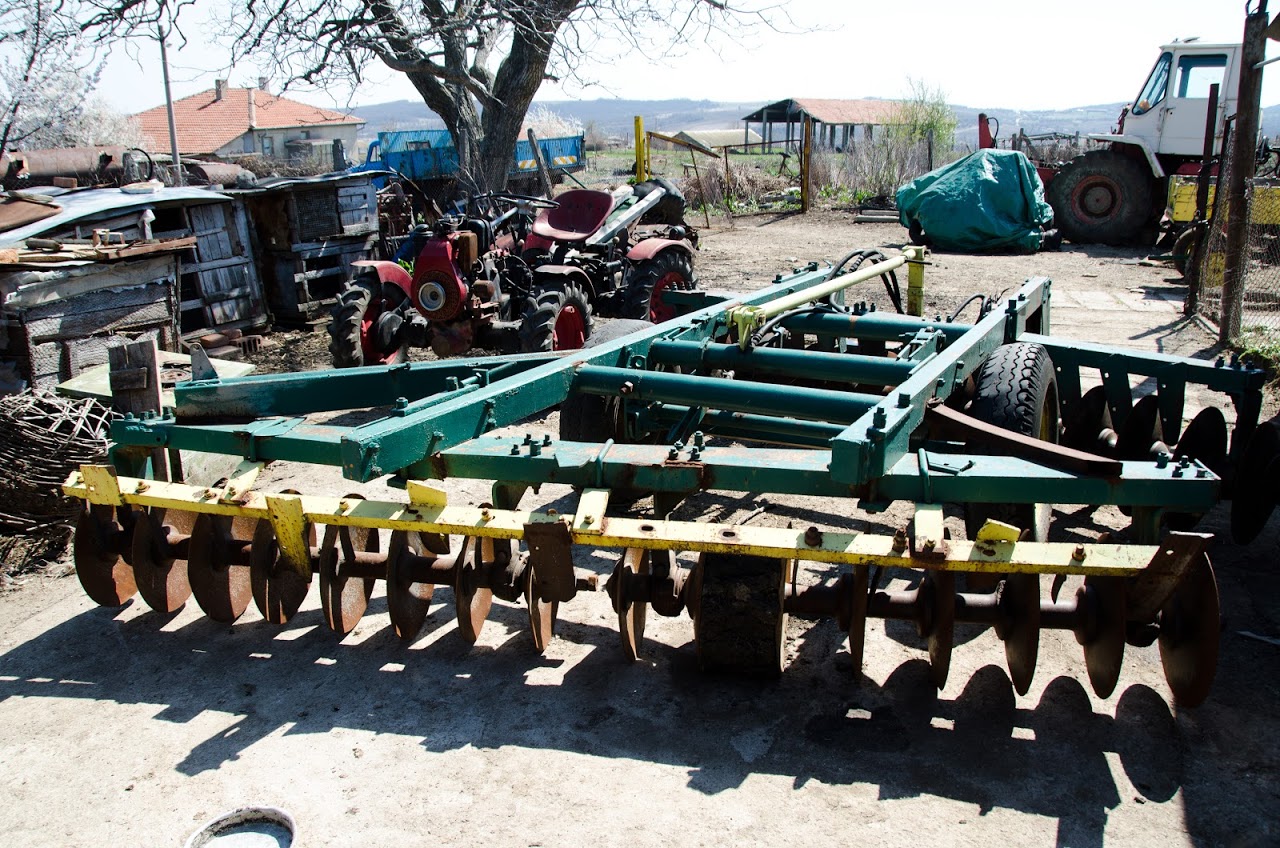
|
Elena, Dimitar, and Maria and their pup, piglets scrounging for food nearby, and their backyard
"Between the two --- capitalism and Communism --- yes, I preferred Communism." Elena is in her mid-fifties, widowed, mother of two, and grandmother of one beautiful baby girl. She brings us plates of pickled red peppers taken from their garden, fried sausage from their yearly pig slaughter, and poached eggs from their own hens. Homemade items --- thick wool socks that reek of moth balls, jars of preserved figs and peaches, long strings of dried tobacco leaves --- adorn the rambling home and we are graciously invited to partake in their homegrown fare.
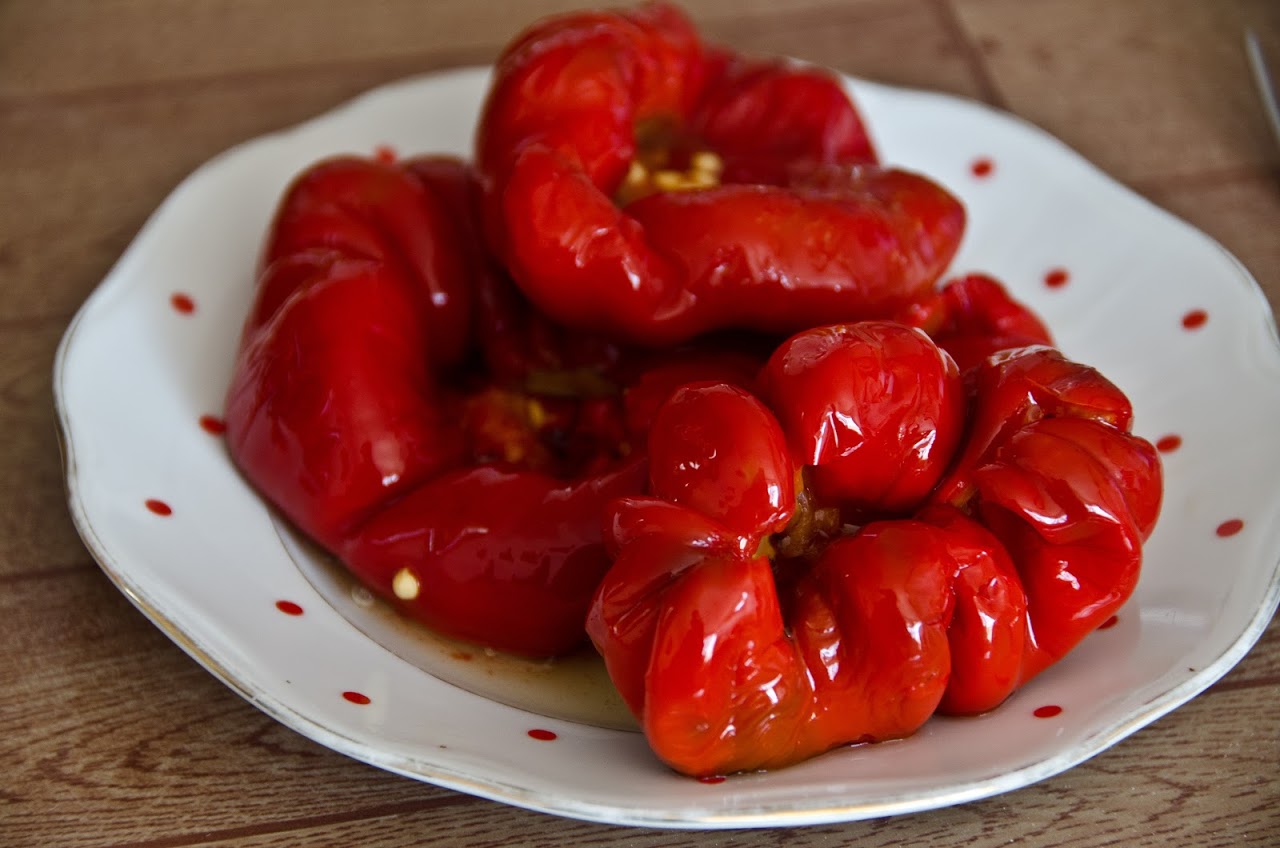
|
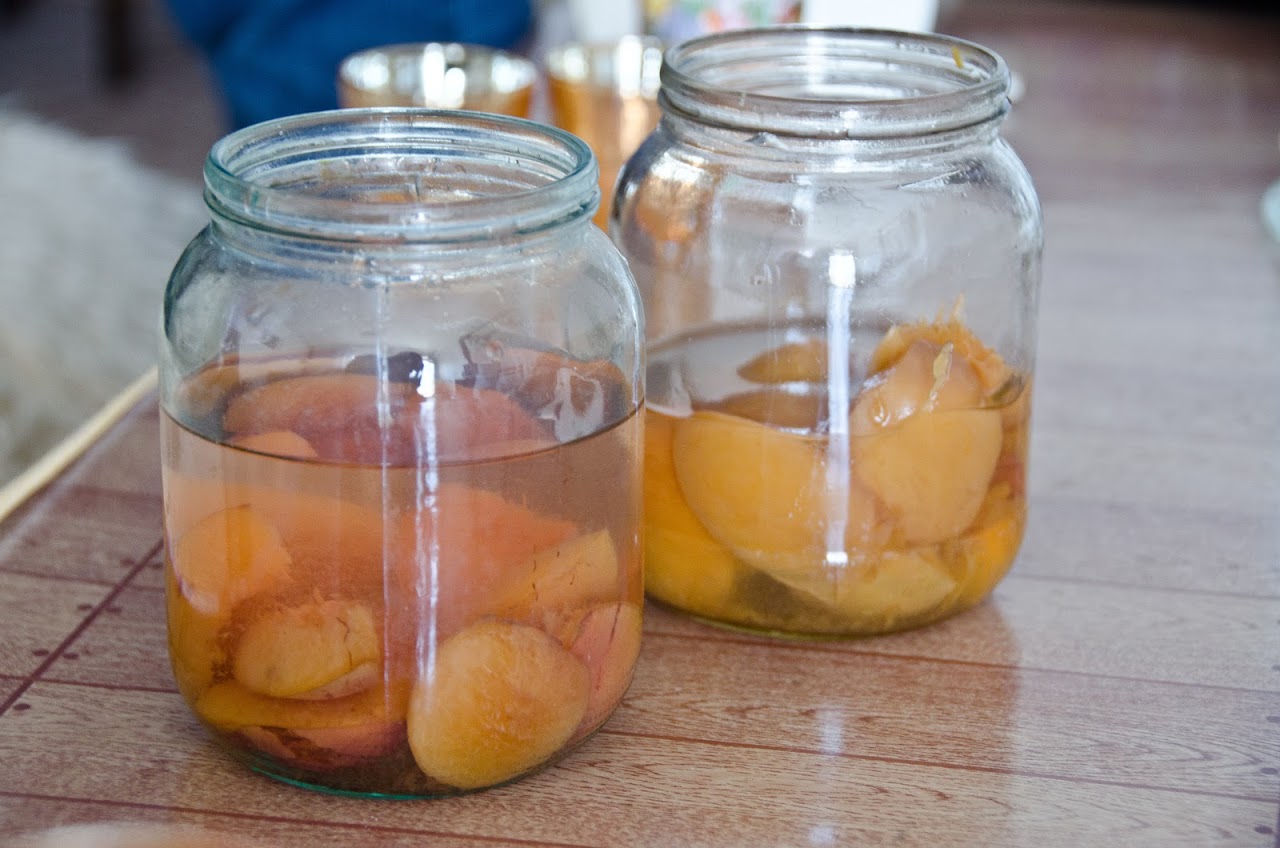
|
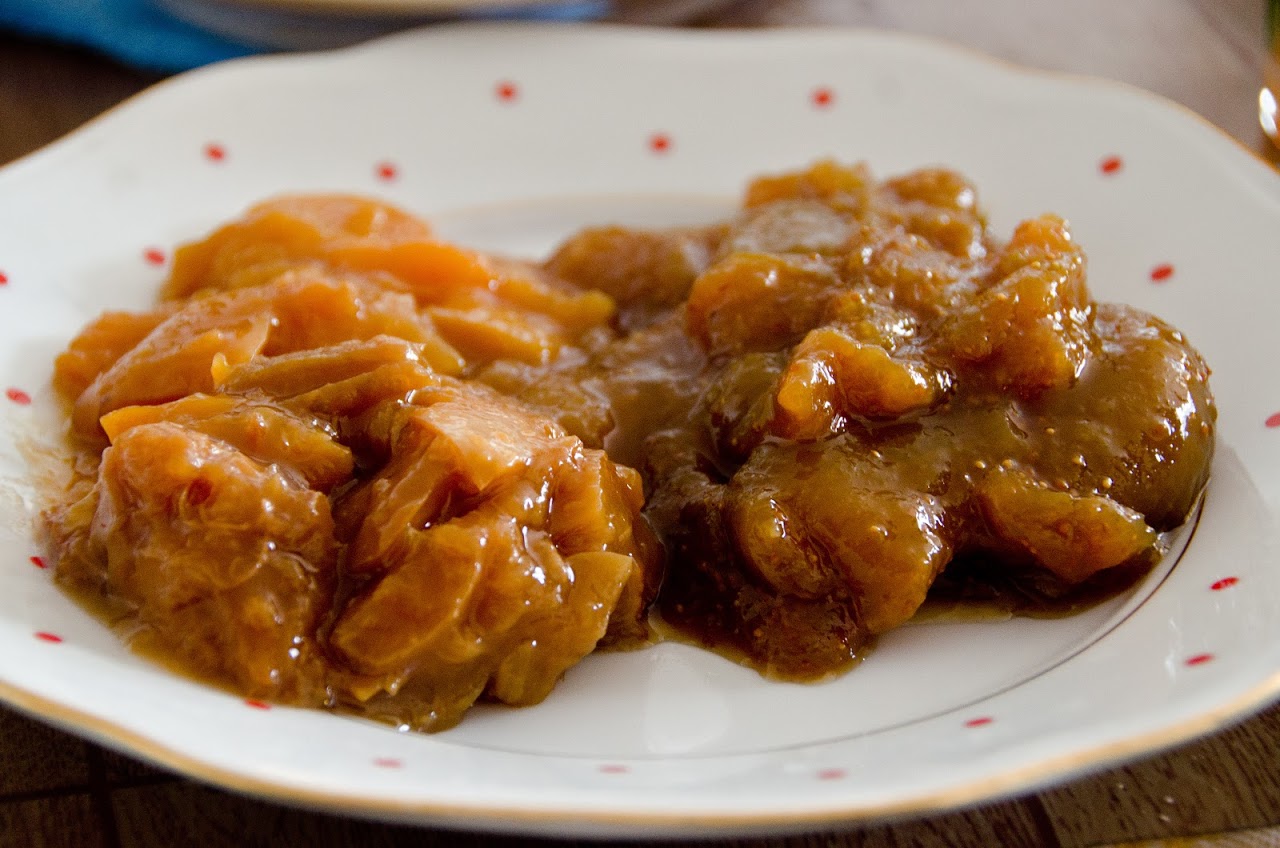
|

|
Lunch at Elena's house
The food is simple yet superb. The red peppers are sweeter than any we have ever had and when I ask Elena for the recipe, she laughs incredulously, "There is no recipe. It is just jarred peppers. Do you not know how to make them? You boil peppers for five minutes, then add a small spoonful of salt, a small spoonful of sugar, and a half cup of vinegar. Then you put it in a jar." Thin syrup clings to chunks of preserved peaches, figs, and nectarines and we find ourselves eating far more than we should. I ask her for the recipe and she laughs, "It is just preserved fruit. Do you not know how to make them?"
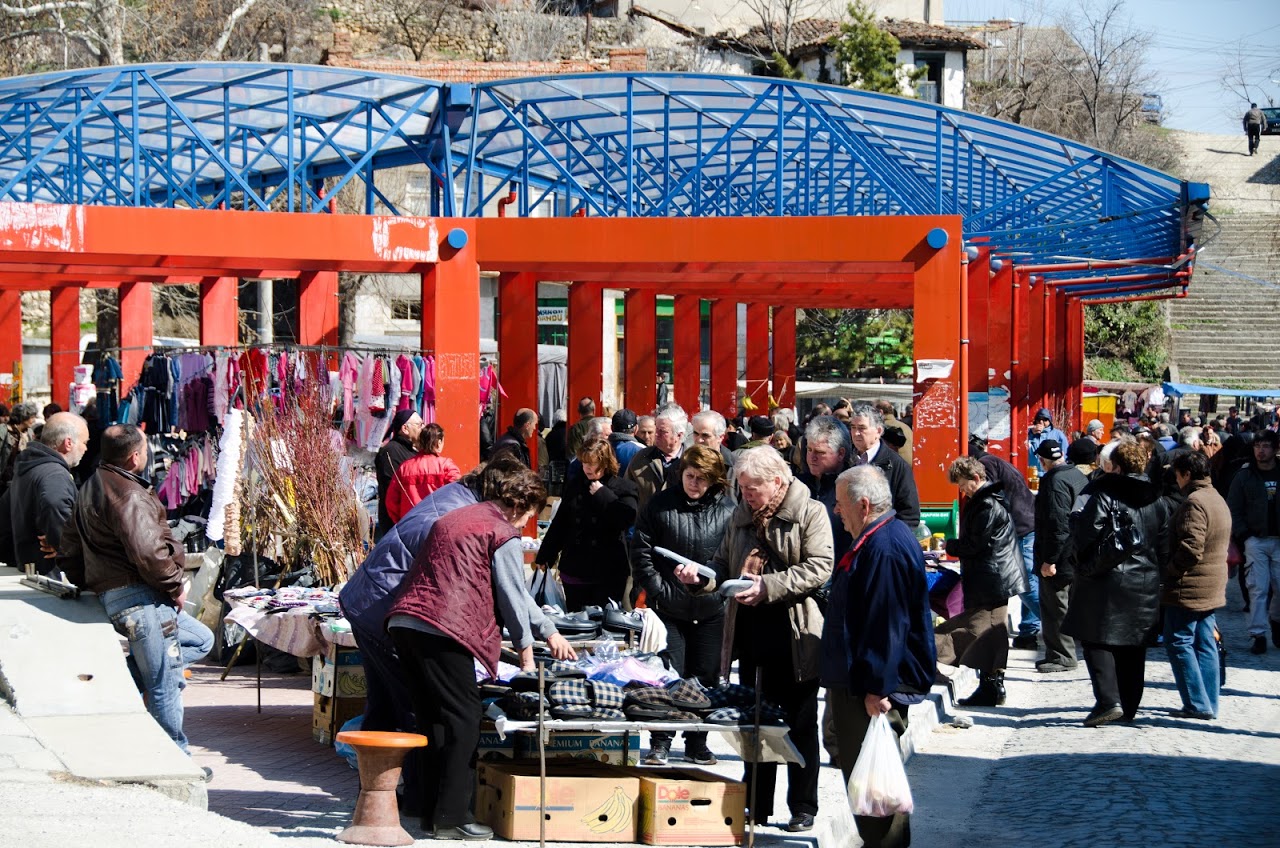
|
|
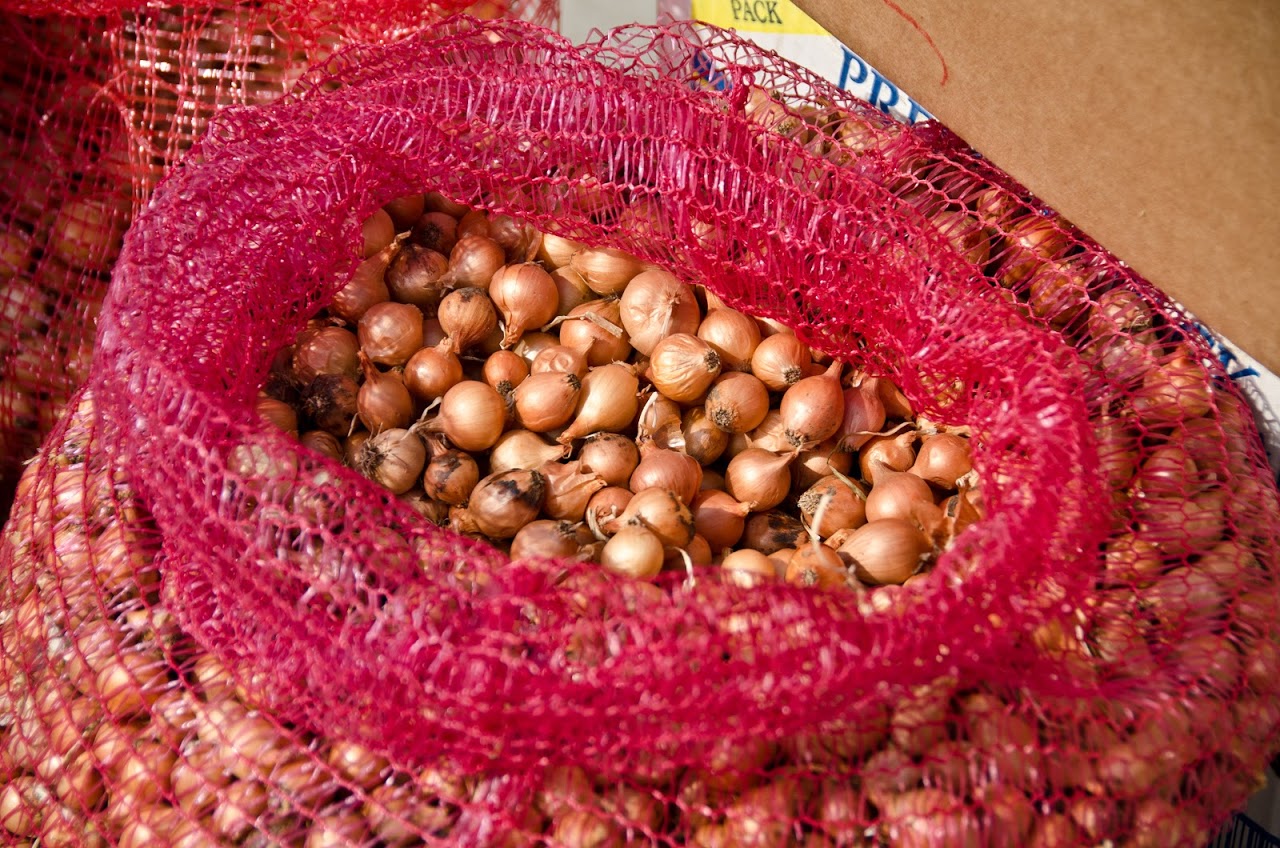
|
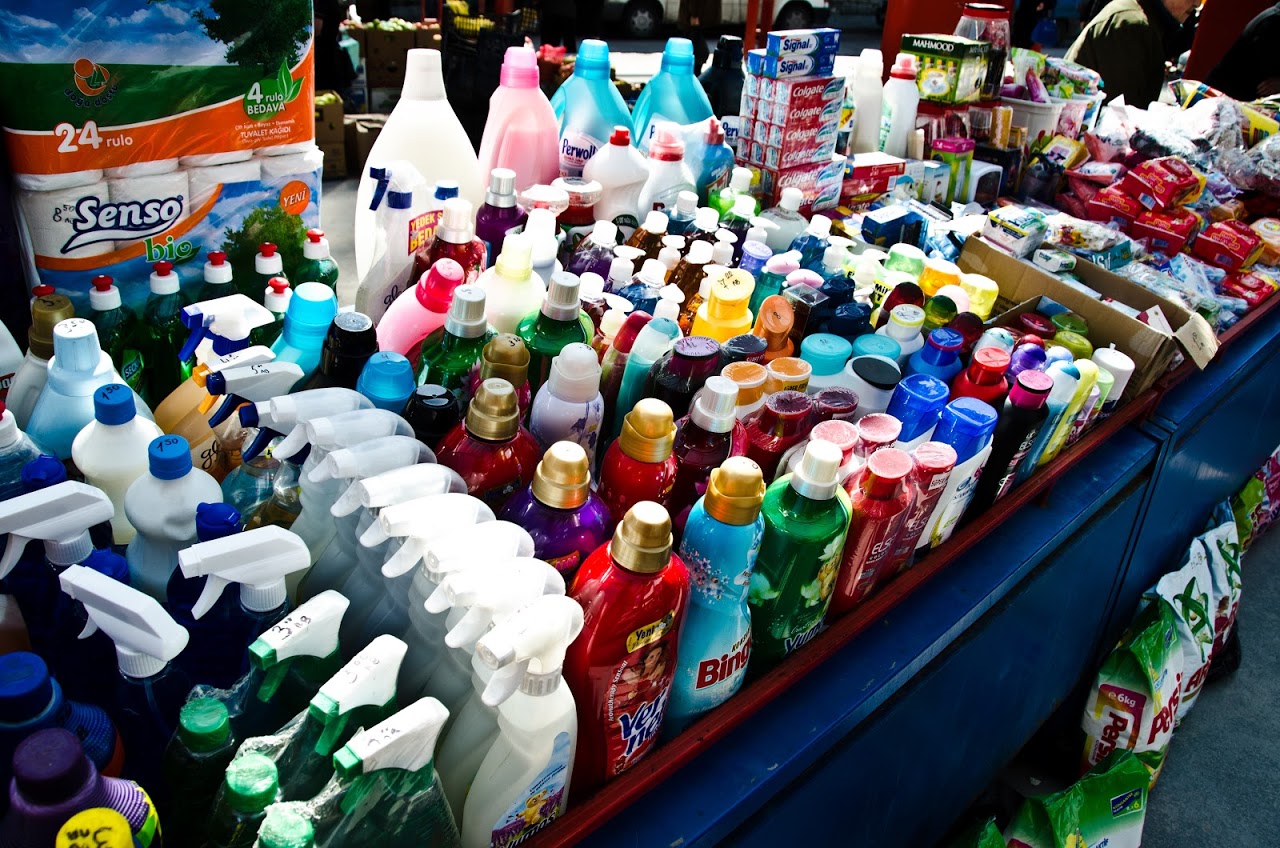
|
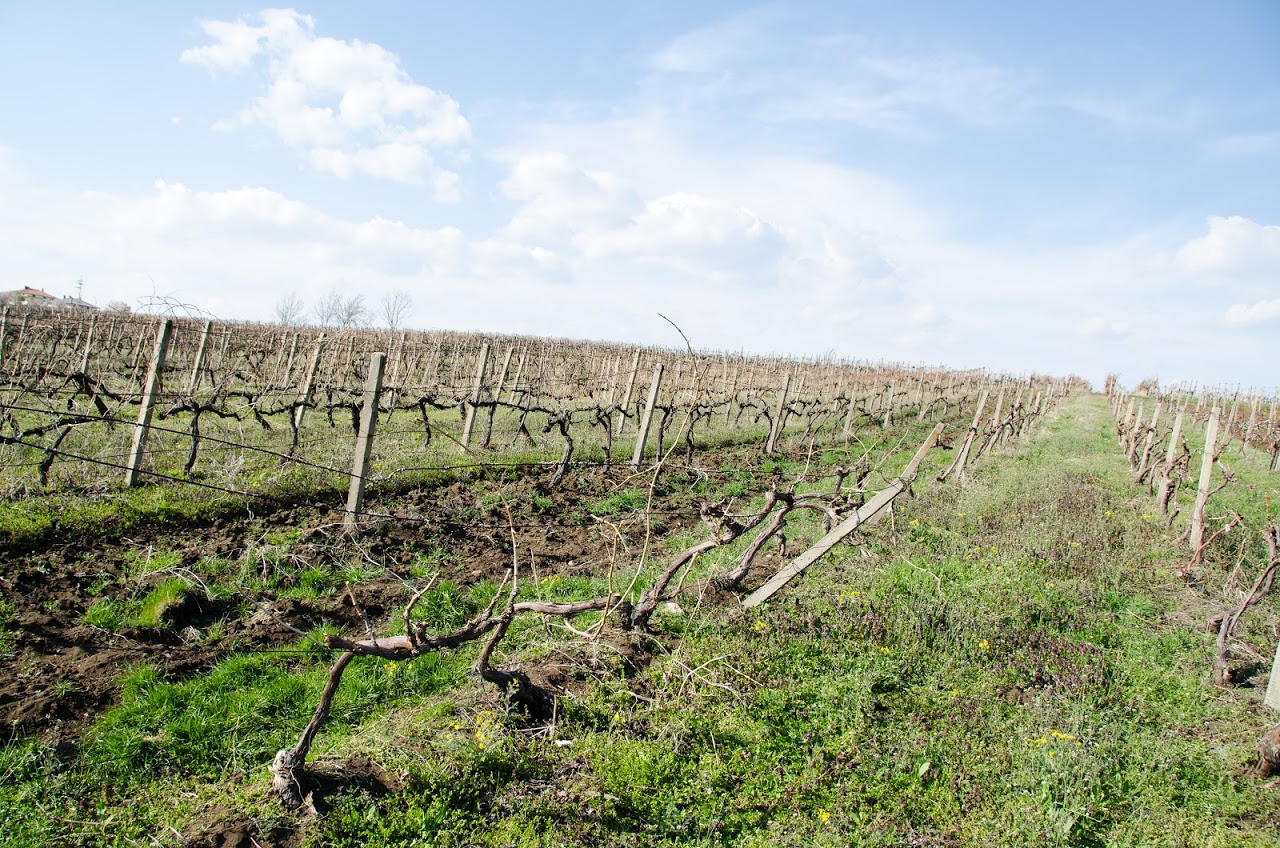
|
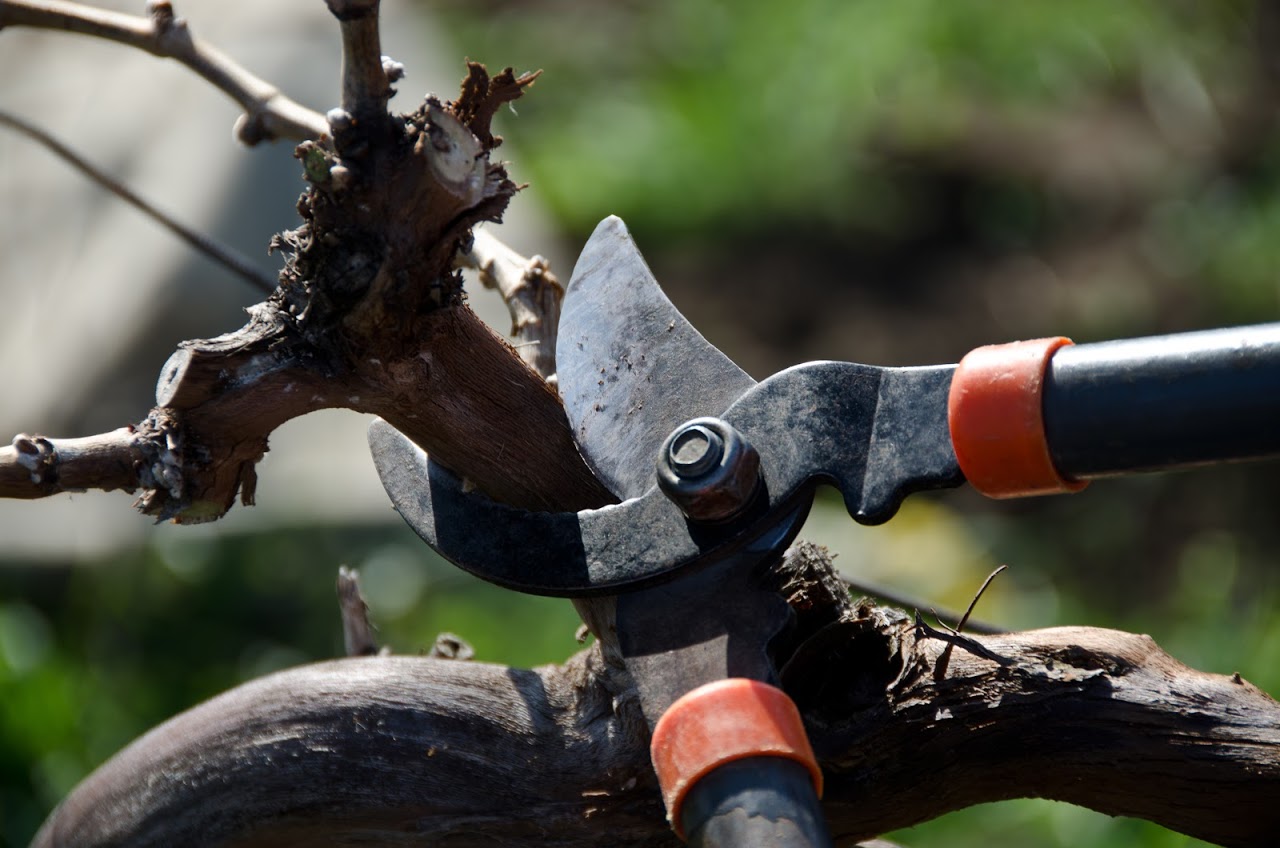
|
Ivailovgrad market and vineyards
There are lots of things like this --- survival skills, you might call them --- that Patrick and I never learned because we grew up in the United States, with abundance flooding our grocery stores, malls, and shopping centers. Elena and her family buy very little from the stores and weekly market --- just bread, milk, and grain products. At Christmas, they butcher a 100 pound pig that they've fattened up all year long and they freeze or saltcure the meat. In the summer, they pickle and preserve vegetables. Maria, Elena's daughter, cares for eleven turkeys, which they keep for eggs throughout most of the year and butcher in the winter. They even make their own throat burning, mouth-on-fire, cough-inducing alcohol, known as rakiya, from distilled grapes or plums.
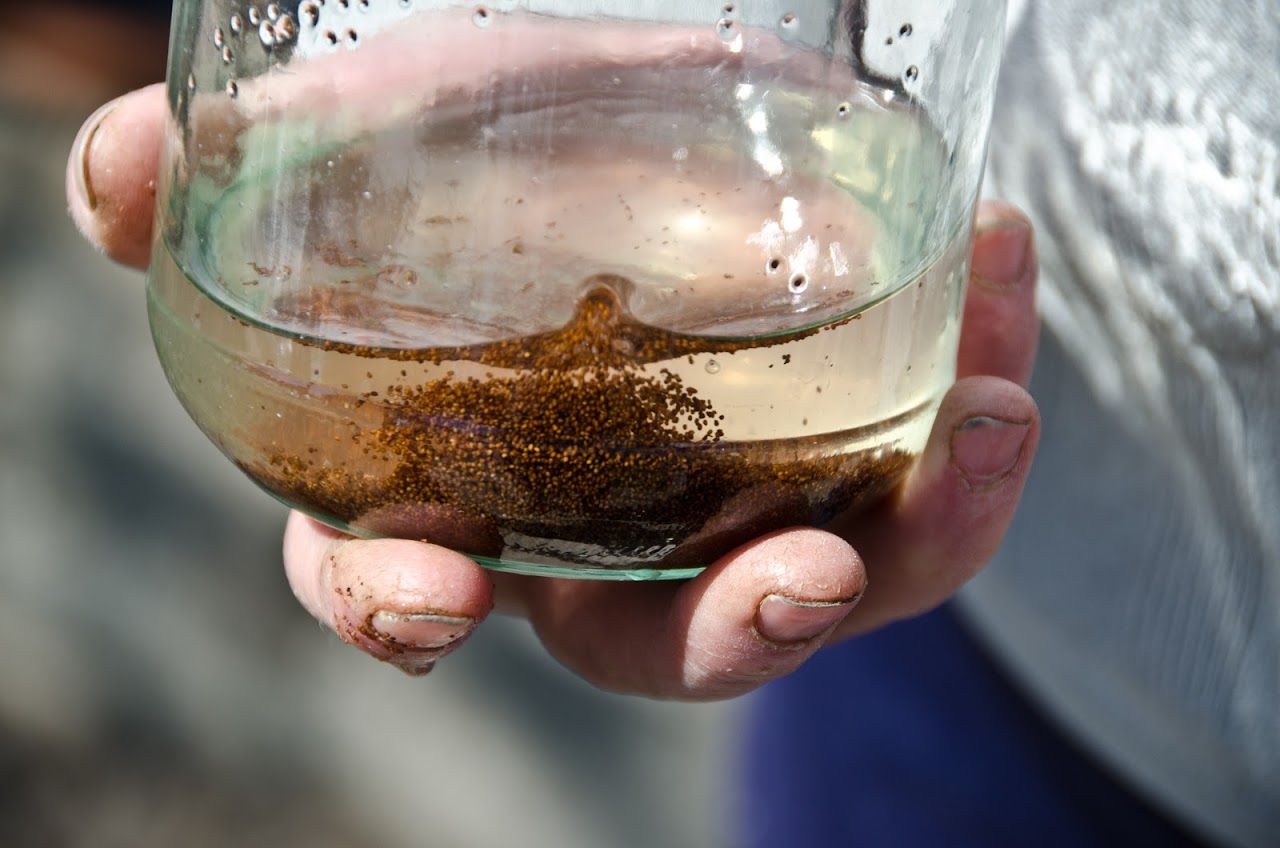
|
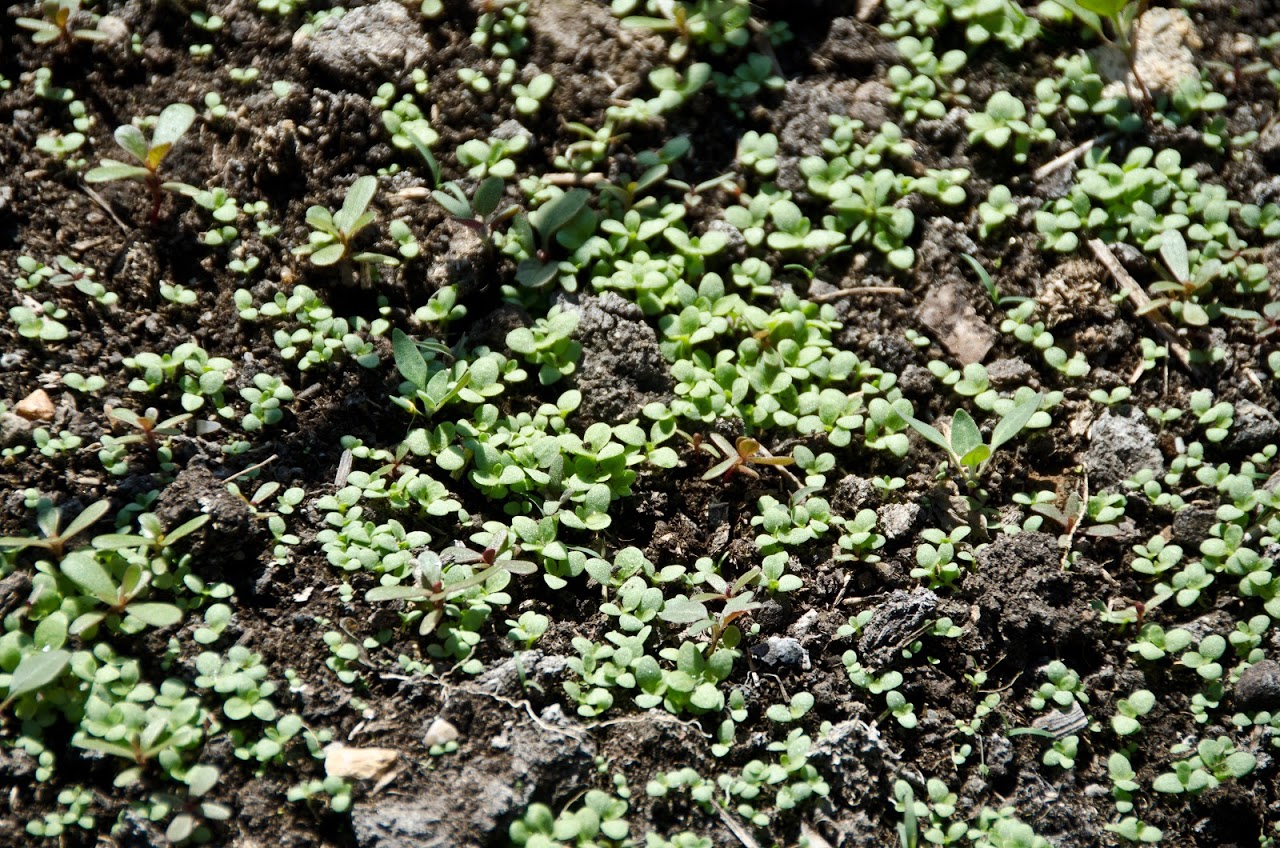
|
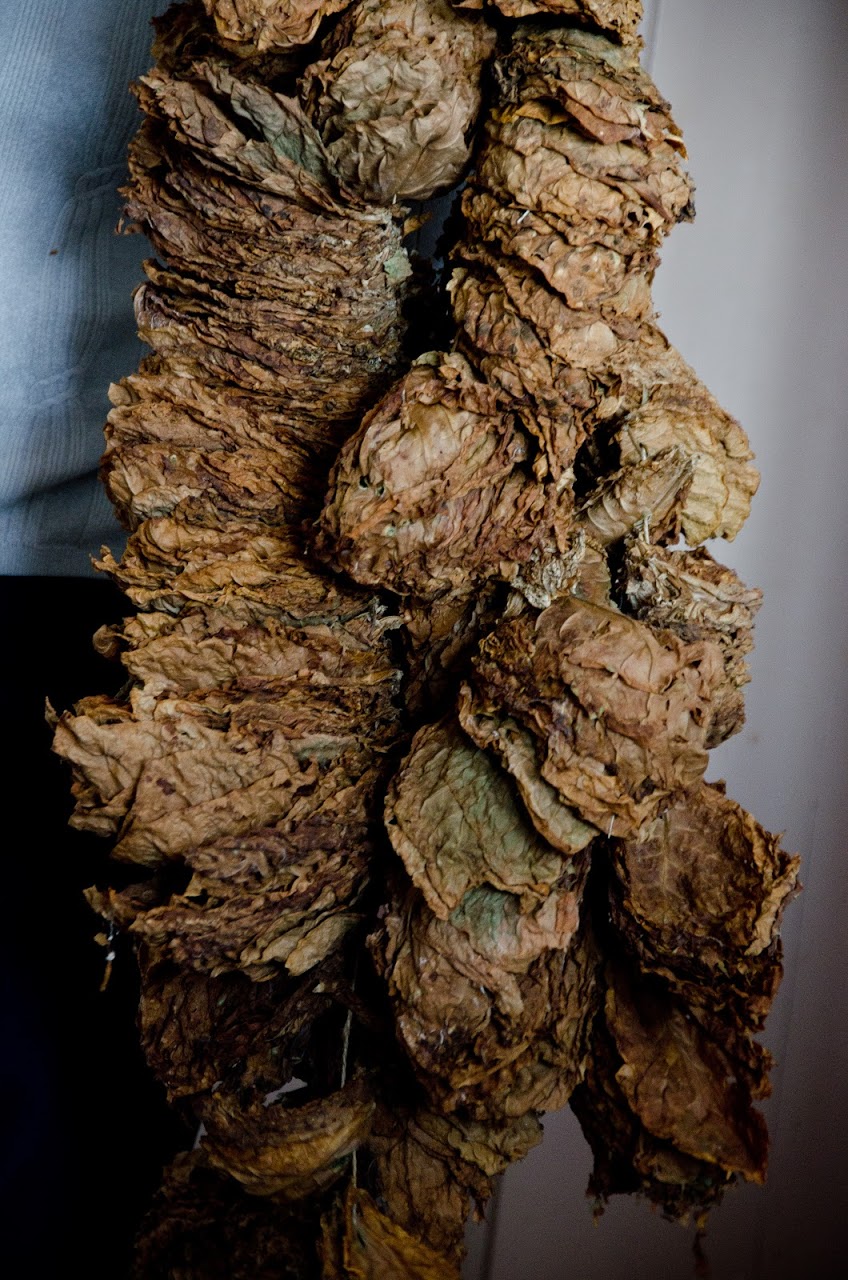
|
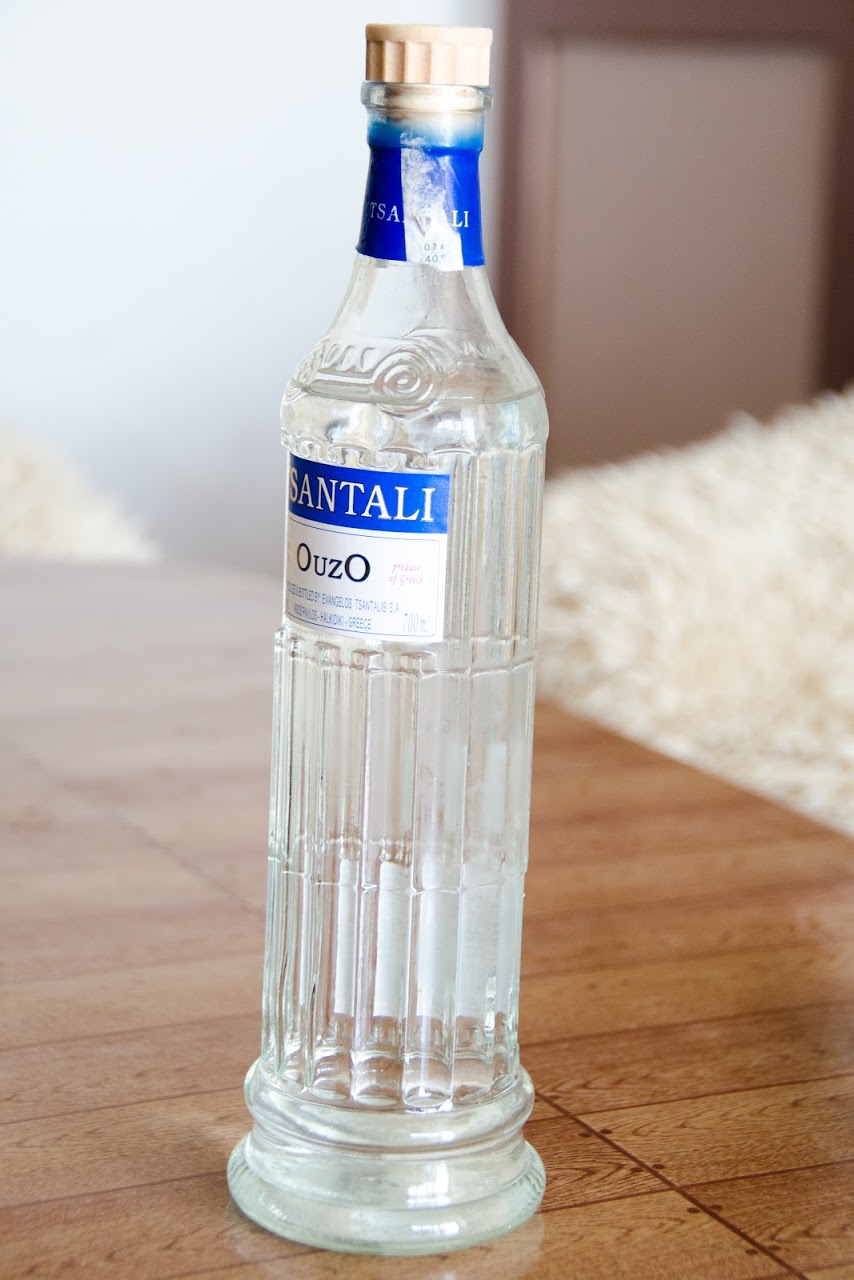
|
Tobacco from seed to dried leaves; homemade ouzo
And, on top of their own household to maintain, they also sell tobacco to a large United States conglomerate. Elena and Maria place the tiny tobacco seeds in water, move the seeds to a cloth for about a week, and then plant the tiny leaves. Eventually, once the leaves are large, they are picked, dried, and sold, for, on average, 5 leva per kilo (about $3.40 USD per two pounds of tobacco leaves). When you consider that a pack of cigarettes only has 0.65 ounces of tobacco in it (about 0.04 pounds) and sells in the United States for somewhere in the vicinity of $5.00 USD, and that they're selling for one Euro less than the Greek farmers across the border , it's not surprising that the Bulgarian farmers are annoyed by this system. That's a markup of 5000%.
Abandoned tractors and donkey-drawn plow
"All of our tobacco is cut by hand," Dimitar tells me, "and it is good quality, but they don't pay us the right price for it. During Communism, tobacco was grown everywhere." Elena worked in the Ivailovgrad textile factory and her husband was a combiner working on transformers and, in the evenings, they would work in the tobacco fields. The Russians brought in tractors, cars, and new farm equipment every two to three years so that the citizens of Ivailovgrad used the best quality equipment to produce food and tobacco for the country and all of the Communist nations.
Today, the Ivailovgrad farmers are still using the thirty-year-old farm equipment and cars purchased by the Russians. Patrick and I drive on empty streets because most of the cars in the city are immovable yard decorations. We are more likely to pass donkey drawn carts than cars or tractors.
Cars sitting in Svirachi
Dimitar says, "The best part of democracy is freedom because, during Communism, we couldn't go out of the Bulgarian border. We couldn't travel. We didn't have American clothes or Japanese cars." Elena responds, "Yes, but, then, we worked and made money. Now, we work a lot and make little money. We have freedom but no money. It's like prison."




